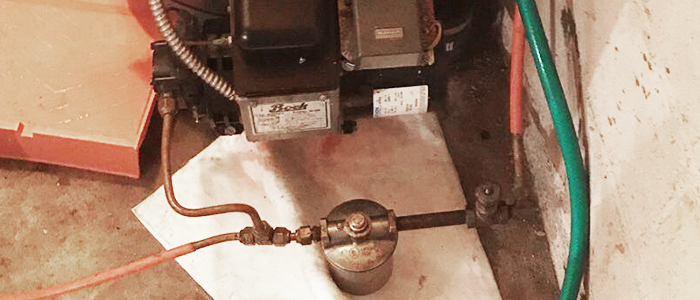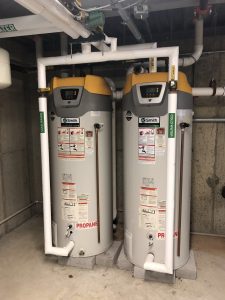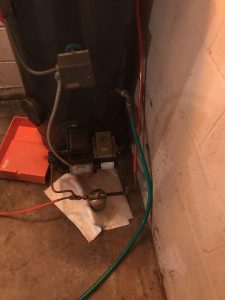Water Heater Best Practices

Your water heater is one of those things in your home that you likely don’t think much about until there is a problem. However, there are some regular maintenances, things to be aware of, and best practices that can help prevent problems from occurring, as well as ensure optimal functionality and longevity of your machine. When it comes to things around the home, proactive maintenance is always better than reactive repair.
Here are a few things to consider when having a water heater installed:
- Location – Not only is it extremely important to know where you heater is located, but also making sure that it is in a location that allows easy access. This is important if you need to get to your water heater quickly in an emergency, but it also helps to serve as a reminder to service it regularly. You know the saying – out of sight out of mind…
 Type Of Water Heater – Being knowledgeable on the equipment in your home is important. First, knowing if you have an electric water heater, a gas water heater, a propane water heater, or a solar water heater. Second, is it conventional? High-efficiency? Tankless? Heat Pump? Condensing? Writing down this information along with the model and serial number can be useful for future servicing and/or for you to give your plumber in emergency plumbing situations.
Type Of Water Heater – Being knowledgeable on the equipment in your home is important. First, knowing if you have an electric water heater, a gas water heater, a propane water heater, or a solar water heater. Second, is it conventional? High-efficiency? Tankless? Heat Pump? Condensing? Writing down this information along with the model and serial number can be useful for future servicing and/or for you to give your plumber in emergency plumbing situations.- Turn-Off Valves – You should know where both the power supply shut off, and water shut-off valve is to your unit. This is helpful in preventing further damage if there is any kind of water leakage or flooding, or if any other emergency issues arise.
- Clear Surroundings – Storing items close to your heater is not a great idea. There should be at least a few – to several feet between your unit and any storage item. This is important because if your unit is “smothered” and is not receiving enough oxygen, its efficiency can be hindered, it could cause damage to the unit, and could even lead to dangerous carbon monoxide leaks. You also want to be able to clearly see around your water heater’s base to be able to monitor for leaks or other potential damages. Additionally, anything near your water heater that is flammable is a huge safety concern.
 Annual Inspections – As mentioned earlier, proactive maintenance is the best way to spot fixes early on and prevent emergency situations. It is also a great way to ensure that your water heater stays running efficiently and lasts as long as it should. Inspections should be performed by your plumber at least once a year and your unit should be flushed regularly. Flushing your unit means draining a few gallons of water out of the drain valve to remove sediment. Your unit may require a full flush if this initial maintenance flush indicates a lot of sediment or debris buildup. Inspections should include checks for any leaks, signs of rust, component functionality, electrical components or gas line parts, any corrosion, residue or soot, any smell of gas, etc.
Annual Inspections – As mentioned earlier, proactive maintenance is the best way to spot fixes early on and prevent emergency situations. It is also a great way to ensure that your water heater stays running efficiently and lasts as long as it should. Inspections should be performed by your plumber at least once a year and your unit should be flushed regularly. Flushing your unit means draining a few gallons of water out of the drain valve to remove sediment. Your unit may require a full flush if this initial maintenance flush indicates a lot of sediment or debris buildup. Inspections should include checks for any leaks, signs of rust, component functionality, electrical components or gas line parts, any corrosion, residue or soot, any smell of gas, etc.
Your water heater plays a vital role in supplying clean, hot water to your family. Regularly monitoring and maintaining your water heater is a great way to prevent issues like; no hot water, odorous water, water that is too hot, rusty water, etc. At Kulk’s Plumbing & Heating, we can provide you with regular inspections and water heater servicing, as well as fix any issues that may arise. If you find yourself with no hot water, or spot any other water heating related emergency plumbing situation, our emergency services are available 24.7! Contact us today for your water heater inspection!

